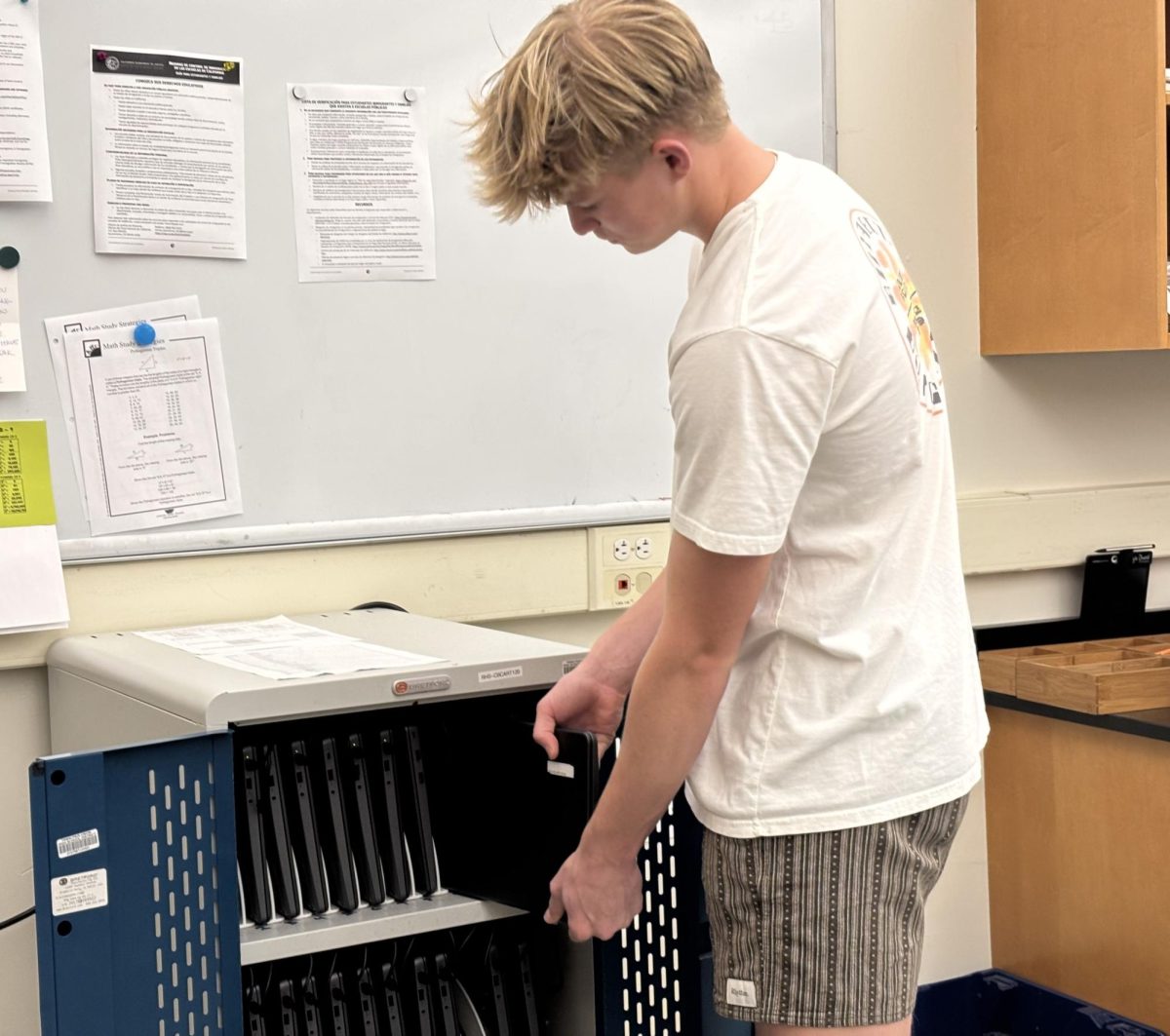At the beginning of the 2024-25 school year, many teachers decided to prohibit students from using their personal computers during class time, forcing classes to adopt the Chromebooks. Teachers decided to implement this rule to minimize distractions during class.

History teacher Lindsey Kornfeld has applied this in her classroom since the 2023-24 school year.
“I [required Chromebook use] last year on my own, and firmly believe, from multiple perspectives, that it’s the right policy. Part of our job is to help you learn how to work with technology [without getting distracted],” Kornfeld said.
Kornfeld strongly believes that using Chromebooks helps students stay on task and makes the classroom more inclusive and equitable.
“If I’m asking everyone to put their phone away, but then a student is pulling out their computer, and they can still text, that isn’t fair or equitable to the student who is not [using a personal computer]. Some students are looking around and thinking, ‘Oh, everyone else here isn’t on a Chromebook.’ Why would we want to make a kid feel that way?” Kornfeld said.
Senior Jaque Thier has a different opinion. When trying to do school work, most of the programs she needs to access are on her personal computer. This makes it hard to be efficient during work time in class when using a Chromebook.
“I think that Chromebooks make things a lot more difficult, especially doing college applications [and other school work]. All of my work and login information is set up on my main computer, and then if I do it on the Chromebook, I have to physically pull up both computers and find my username and password and switch everything over,” Thier said.

Kornfeld understands that Chromebooks sometimes operate slower than other computers, but does not believe a strong enough reason to switch back.
“I joke in class, ‘We’re all in this together.’ We’re all going to turn the Chromebooks on, and it might take four minutes instead of two minutes [to log on] but once you’re in, the computing power of a Chromebook is fine,” said Kornfeld.
By eliminating personal computers, Kornfeld feels that students are more likely to succeed without being tempted by distractions. For her, the benefits overshadow the negatives.

“I have seen my students feel way less distracted. When they’re into work, there’s fewer distractions. There are ways if you want to get around it, we’re not naive to that, [but by using the Chromebooks] we can set students up for the most success. That’s our job as educators,” said Kornfeld.
However, Thier points out that switching to Chromebooks has not stopped students from getting distracted.
“They put a policy in place because, on personal computers, you can text your friends, talk to people and do things without restrictions. I think they’re trying to minimize distractions, but I don’t think it’s very effective because you can still play games on a Chromebook. There are unrestricted games, and you can still talk to people on a Chromebook through email,” said Thier.
Although the mandatory use of Chromebooks has not become a schoolwide policy yet, many teachers have decided to establish this rule. Teachers want to be able to monitor computer use, and when everyone is using Chromebooks, it makes it easier for them to teach when needing to use technology. For more information on technology use at school, visit the Redwood website and look under the computer use agreement tab.








